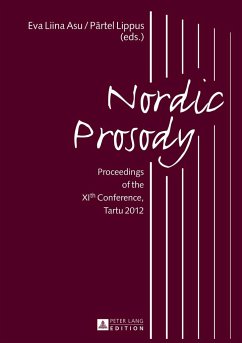
Proverbs Are Never Neutral

PAYBACK Punkte
57 °P sammeln!
This book examines how proverbs can carry ethnonyms and contradictory oppositions in everyday speech, and interrogates the belief that such nuances are national in nature by comparing across languages and cultures. The authors bring together linguistic terms and typologies from Slavonic, Germanic, Romance, Finno-Ugric and Somali proverbs (with their English parallels) to enrich contrastive paremiology. The book pushes the thematic boundaries of the paremiological minima of languages by drawing on fields including sociolinguistics, and it will be of interest to students and scholars of cultural...
This book examines how proverbs can carry ethnonyms and contradictory oppositions in everyday speech, and interrogates the belief that such nuances are national in nature by comparing across languages and cultures. The authors bring together linguistic terms and typologies from Slavonic, Germanic, Romance, Finno-Ugric and Somali proverbs (with their English parallels) to enrich contrastive paremiology. The book pushes the thematic boundaries of the paremiological minima of languages by drawing on fields including sociolinguistics, and it will be of interest to students and scholars of cultural linguistics, comparative cultural studies, sociolinguistics, social identity, anthropology, cognitive semiotics, and the history of words and concepts.














